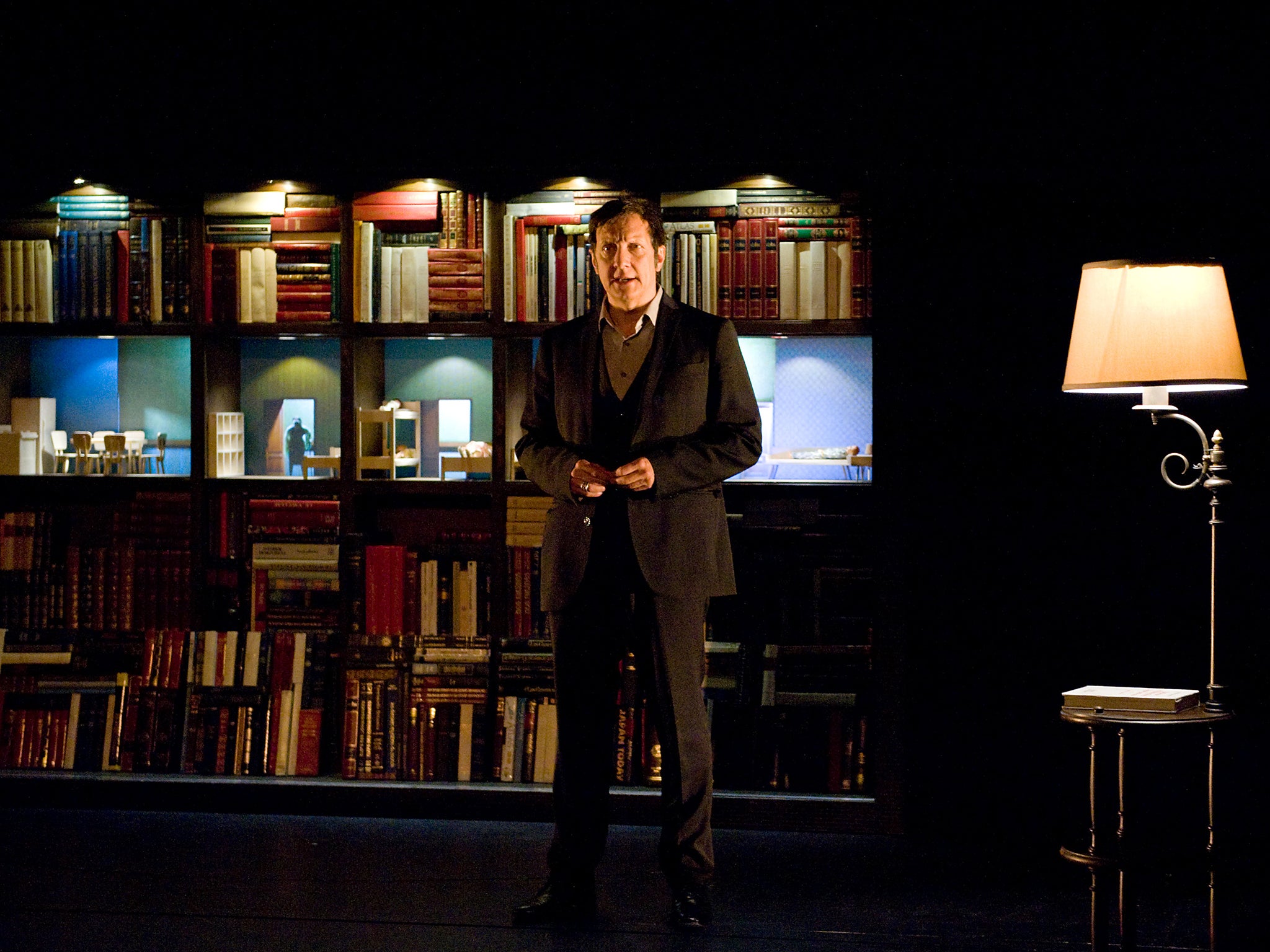887, Edinburgh International Festival review: Robert Lepage's reflections will stay long in the memory
Lepage and his unseen team have created a masterpiece on so many levels

Your support helps us to tell the story
From reproductive rights to climate change to Big Tech, The Independent is on the ground when the story is developing. Whether it's investigating the financials of Elon Musk's pro-Trump PAC or producing our latest documentary, 'The A Word', which shines a light on the American women fighting for reproductive rights, we know how important it is to parse out the facts from the messaging.
At such a critical moment in US history, we need reporters on the ground. Your donation allows us to keep sending journalists to speak to both sides of the story.
The Independent is trusted by Americans across the entire political spectrum. And unlike many other quality news outlets, we choose not to lock Americans out of our reporting and analysis with paywalls. We believe quality journalism should be available to everyone, paid for by those who can afford it.
Your support makes all the difference.Robert Lepage remembers it all, in vivid detail. He remembers the apartment block at 887 Murray Avenue in Québec city where he grew up, and the friends and neighbours who lived in the two stacks of four apartments that made up his hallway. He remembers his old friend Fred, a former newsreader whose alcoholism caused him to be relegated to a backroom job recording obituaries, but who has access to Lepage’s “cold cut” – his pre-written death notice. He remembers his father not being there; not through his lack of concern for his children, but because the only way this proud former lifeguard and sailor could provide was to drive his taxicab every night.
He remembers Québec and what it was when its struggle with its own identity was a visceral thing, from the “Quiet Revolution” – the socialist reforms that transformed the governance of the state, starting in 1960 – to 1970’s October Crisis, and the terrorist actions of the Front de Libération du Québec. The thing is, they’re right, said his father, slumped in front of the television, but the way they’re doing it isn’t. Beneath all this, his childhood memories of the area he grew up, of days at the beach and four children crammed into a tiny house, of the history before there were streets here which helped shape Canada.
But why can’t he remember Michèle Lalonde’s 1968 poem “Speak White”, about the campaign slogan aimed at encouraging French-Canadians to speak English, which he’s due to deliver at an important recital in two weeks? Memory isn’t fluid, you see. It’s a mess of tied-together associations and triggers that constitute not just our sense of self, but our sense of nationhood and of every relationship we hold dear.
It doesn’t feel like hyperbole to say Lepage and his unseen team have created a masterpiece on so many levels. Visually, it’s stunning; Lepage presents alone, while the black cube behind him rotates and becomes a miniature apartment block with moving figures in the windows or a dive café frequented by his lonely father. Thematically and emotionally it contains multitudes, a rich but deeply personal experience that rewards the 135 minutes it takes to enjoy.
To 31 August (0131 473 2000)
Join our commenting forum
Join thought-provoking conversations, follow other Independent readers and see their replies
Comments